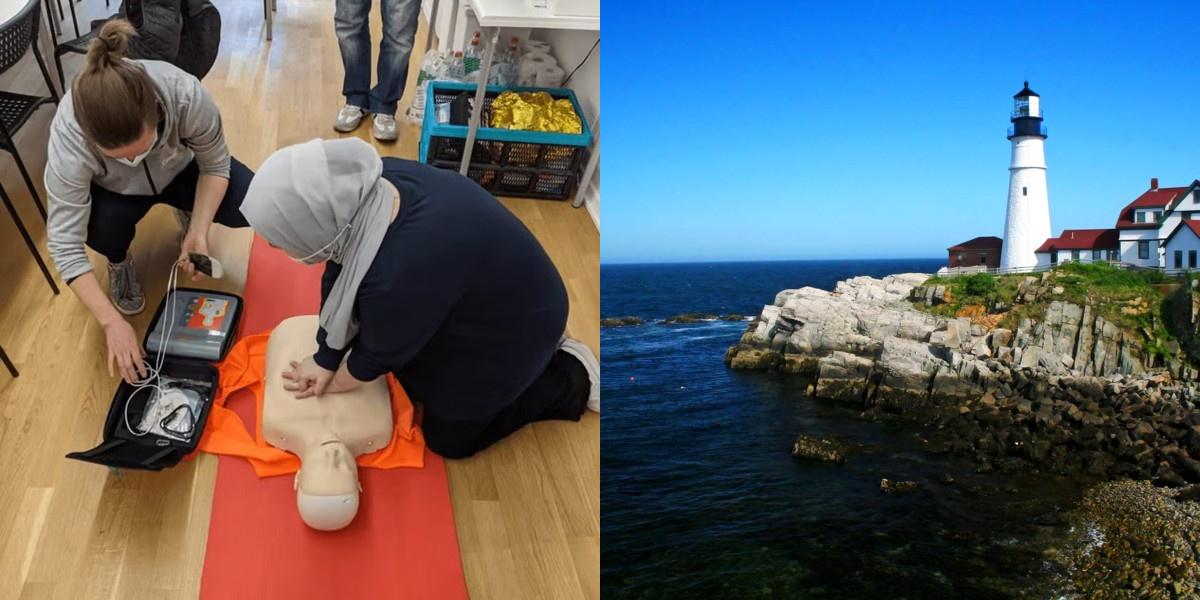How to Become a Paramedic in Maine

Paramedics in Maine play a critical role in emergency medical services (EMS), providing life-saving care during emergencies. If you’re looking to start a rewarding career as a paramedic, this guide will help you understand Maine’s paramedic requirements, the best training programs, job opportunities, and salary expectations.
Key Points
- A paramedic is a highly trained medical professional who responds to emergencies and provides critical pre-hospital care.
- To become a paramedic in Maine, you must complete an accredited training program, pass the National Registry of Emergency Medical Technicians (NREMT) exam, and obtain state licensure.
- Paramedic training programs in Maine typically takes 1-2 years.
- The average paramedic salary in Maine is around $53,510 per year.
5. Obtain Maine State Licensure
Once certified, apply for a Maine state paramedic license to legally work as a paramedic in the state.
6. Apply for Paramedic Jobs
Start your career in emergency medical services (EMS) by applying for paramedic positions at ambulance services, fire departments, or hospitals. You can use platforms like My Next Move to explore job opportunities.
Where to Find Paramedic Classes in Maine
If you're looking for paramedic classes in Maine, Dreambound is the top platform to find and compare vocational training programs. Offering both in-person and online options, Dreambound connects you with accredited paramedic training programs across the state. You can explore available courses, review details like tuition and location, and choose the program that fits your needs.
Career Paths and Opportunities after Becoming a Paramedic
Becoming a paramedic can lead to many career advancement opportunities, including:
- Firefighter/Paramedic: Work with fire departments providing both firefighting and emergency medical services.
- Flight Paramedic: Provide critical care transport in helicopters and air ambulances.
- Emergency Room Technician: Work in hospital emergency departments assisting nurses and doctors.
- Tactical Paramedic: Provide medical support for law enforcement and SWAT teams.
- Paramedic Instructor: Train future paramedics at vocational schools and EMS academies.
Frequently Asked Questions
How long does it take to become a paramedic in Maine?
To become a paramedic in Maine, it typically takes about 1-2 years. This includes completing an accredited paramedic training program, which combines classroom instruction with hands-on clinical experience. After training, passing the National Registry of Emergency Medical Technicians (NREMT) exam and obtaining state licensure are required to practice as a paramedic.
What is the shortest time to become a paramedic?
The shortest time to become a paramedic is about 12 months through an accelerated paramedic program. These intensive programs are designed for those who have already completed EMT-Basic training and have experience in emergency medical services. However, most paramedic programs take 1-2 years to complete, depending on the state and training requirements.
How long does it take to become an EMT in Maine?
Becoming an EMT (Emergency Medical Technician) in Maine typically takes 3-6 months, depending on the program. EMT-Basic training includes classroom instruction, hands-on clinical training, and certification exams. Once completed, EMTs can advance to Advanced EMT (AEMT) or Paramedic training, which requires additional coursework and clinical hours.
What degree do most paramedics have?
Most paramedics hold an Associate Degree in Emergency Medical Services (EMS), which takes about 2 years to complete. While a degree is not always required, many paramedics complete an Associate’s or Bachelor’s degree to increase job opportunities and prepare for career advancement into EMS management, firefighting, or nursing. Some paramedics also choose to pursue a Bachelor’s degree in Healthcare Administration, Public Safety, or Paramedicine for leadership roles in the field.
Final Thoughts
Becoming a paramedic in Maine is a challenging yet rewarding career path that offers job stability, career growth, and the opportunity to save lives. If you’re passionate about emergency medicine, now is the perfect time to start your journey.
Start your training today with Dreambound, the top platform for finding accredited paramedic programs.
Are you thinking about a job change or wanting to learn more about different career paths? Feel free to check out these additional articles:




